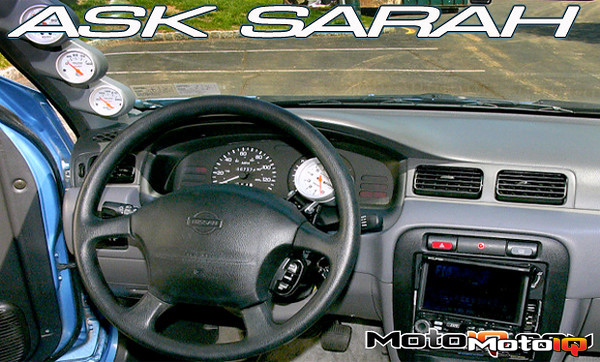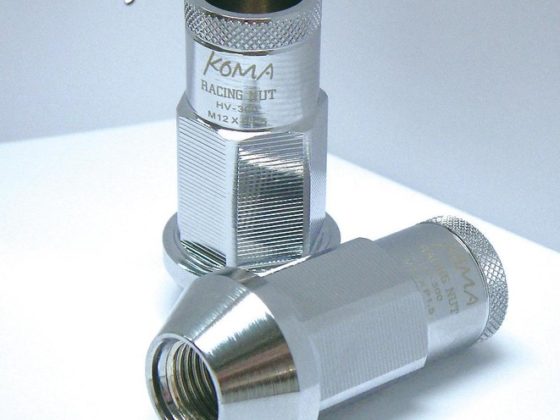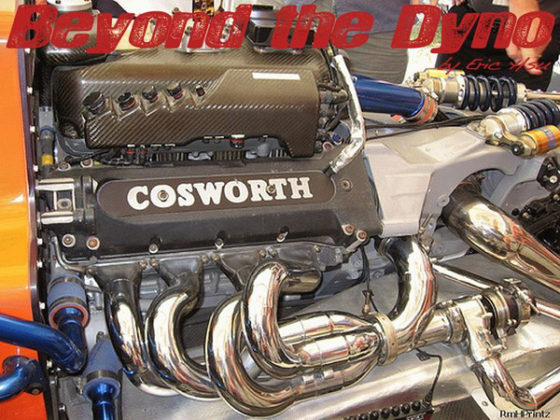
I am wondering about gauges and their importance; specifically, oil temperature versus oil pressure. If you had to choose between the two, which one would you pick? And does it matter for a street car versus track car?
Ben
Po-TAY-toe, Po-TAH-toe… For the most part, it's a matter of personal preference. As long as you're monitoring something related to your engine's vital signs, you're more likely to notice when anything goes wrong. If it is me deciding between an oil pressure gauge or an oil temperature gauge, I'd go with an oil pressure gauge. The loss of oil pressure often results in complete obliteration of the engine. The engine's main and rod bearings are made of soft metal such as tin, copper, and zinc (some older engines used lead) with alloying agents like iridium added to increase the mechanical property of the metal's grain. Softer materials have greater embedability, which means they can more easily absorb hard contaminates such as dirt, metallic debris, and casting sand. Since the softer bearing surfaces soak up the contaminants, it is less likely to damage the hard steel surface of the crank's journals if the incompressible, pressurized oil film fails to eliminate contact between the bearings and journals. A tiny bit of oil is lost at each rotation due to the centrifugal pumping action created by the rotating rod journals. If the oil pump can't replenish the oil quickly enough and oil pressure drops off considerably, the crank will quickly eat up the soft bearings and the material flakes away, disrupting the oil film. The bearing shell will then fuse itself to the crank, scoring the crank journals. The rods, pistons, and valvetrain follow quickly afterwards if the engine continues to be driven. At high load/rpm, the complete loss of oil pressure can destroy an engine in milliseconds. Obviously in that case, either gauge would be useless!
Oil temp is a good indicator of the readiness of your engine, such as if it's overheated or too cold. But low oil pressure can indicate if your oil pump is getting a little long in the tooth, if the oil pickup screen is clogged, if there is debris in the oil or if the oil is dirty and it's time for an oil change and new oil filter. It can also be a sign of excessive wear (such as high mileage engines) or low oil volume. While there is no exact one-to-one relationship between oil pressure and oil temperature, since oil becomes less viscous at it warms, oil pressures start out higher in cold starts and then start to drop as oil temps get warmer so there is some indication of oil temps when monitoring an oil pressure gauge. In either case, if the oil temps are sky rocketing or if oil pressure has dropped off considerably, it's time to let off and investigate.
 |
| Engine bearings must be soft enough to soak up metallic particles but still have a high load bearing capacity since the engine's reciprocating parts transfer thousands of pounds of force to the bearings even though an incompressible oil film prevents metal to metal contact. |
 |
| These bearings are ACL tri metal heavy duty Formula Atlantic bearings from Technosquare's Toyota 4AG engine. They are Tri Metal construction, which provides superior load bearing capacity, but they don't have the typical zinc layer that gives a bit of embedabilty. The thought is this zinc layer reduces heat transfer and isn't necessary in a racing engine that is cleaned carefully during assembly. |
There are other reasons why I think an oil pressure gauge would be more beneficial than an oil temp gauge, especially on the track. When cornering hard such as when road racing or accelerating hard such as at a drag strip, many engines will see a drop in oil pressure which could indicate an oil starvation issue. For this reason, oil pressures should be closely monitored, especially on the track. Oil pressure should also be watched with turbocharged cars, though ball bearing turbos require less oil than journal bearing turbos and may even need an oil inlet restrictor depending on your engine's oil pressure. If the turbo is starved for oil, you may be shopping for a new one shortly. Finally, with engines such as the Subaru EJ25 which is known for broken oil pickups, or the Nissan/Infiniti SR20DE, which have shallow oil pans that easily get dented near the pickup, an oil pressure gauge is extremely important. Of course, the VQ37VHR and BMW 330 (and other engines that use a lot of oil to activate their variable valve cam timing systems) are well known for their high oil temperatures, so it might be a good idea to equip your car with an accurate oil temp gauge if your engine has this known problem.



